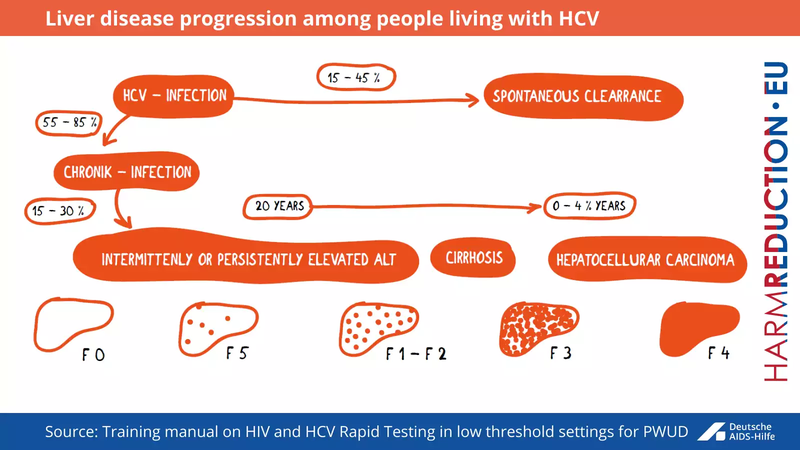The biology of the Hepatitis C virus (HCV)
The Hepatitis C virus (HCV). Viral hepatitis C is a liver disease caused by the hepatitis C virus (HCV) which attacks liver cells and replicates inside them leading to changes in liver cells and malfunctions.
Viral hepatitis C is a liver disease caused by the hepatitis C virus (HCV) which attacks liver cells and replicates inside them leading to changes in liver cells and malfunctions. The virus can cause both acute and chronic hepatitis, ranging in severity from a mild illness lasting a few weeks to a serious, lifelong illness. A significant number of those who are chronically infected will develop cirrhosis or liver cancer. Acute HCV infection is usually asymptomatic, and is only very rarely (if ever) associated with life-threatening disease. About 15–45% of people who get infected spontaneously clear the virus within 6 months of infection without any treatment; their immune system successfully clears from their bodies. The remaining 55–85% of people will develop chronic HCV infection. Of those with chronic HCV infection, the risk of cirrhosis of the liver is between 15–30% within 20 years.

- Prev: The biology of HIV
- 1.2 (current)
- Next: HIV transmission


